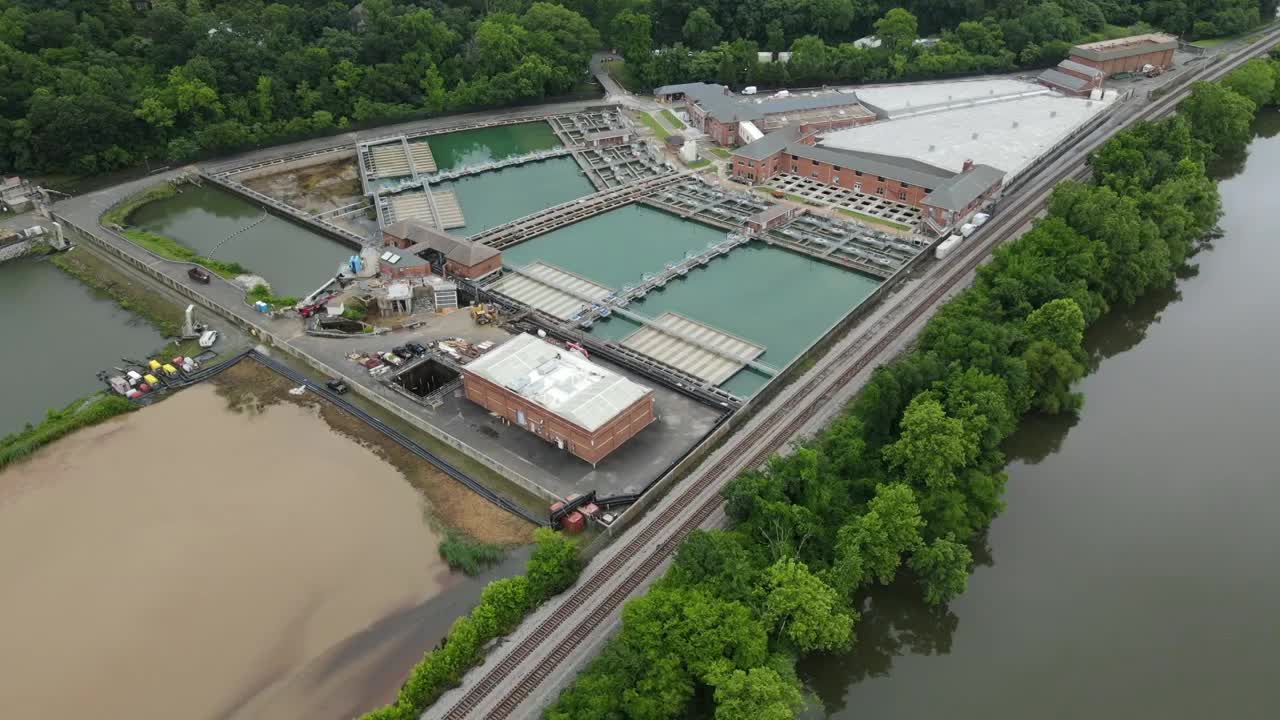RICHMOND, Va. — A newly obtained consultant report that was requested by the City of Richmond in the aftermath of the May boil water advisory is shedding light on some additional concerns at the Water Treatment Plant that state officials believe played a role in what went wrong.
The city issued a boil water advisory on May 27 due to low water pressure, which occurred on the heels of the January water crisis and fluoride exceedance in April.
At the time, Richmond's Department of Public Utilities Director Scott Morris swiftly announced a cause: Delayed maintenance in cleaning equipment critical to the filtration process and high turbidity in the source water, the James River, led to clogged filters.
But DPU did not directly attribute another key issue as a possible factor: an inadequate pre-treatment process.
“In our view, it was both things. There was a maintenance aspect to this, and then there was also an operational aspect, that if they had some better operational processes, in addition to some improved maintenance, that we could have avoided that event," said Dwayne Roadcap, the director of Virginia Department of Health's Office of Drinking Water which regulates the plant.
A consent order VDH issued to the city in July cited "potentially inefficient coagulation feed processes by DPU staff" as a contributor to the boil water advisory. Coagulants are essentially chemicals added to the raw water source that can help remove solids from it.
“And then that helps improve the water quality that moves through the treatment train and to the filters, so the filters don't have to do as much work," Roadcap explained.
But Roadcap said there was some concern that DPU may not have been properly monitoring the source water, which changes with the weather, in order to apply the appropriate dosing of chemicals.
We've since learned that DPU paid about $22,000 to the engineering firm WRA to produce a report on the city's coagulation operations and to identify opportunities for improvement. The city submitted that report to VDH in late June.
On July 11, CBS 6 requested the report from Richmond under the Freedom of Information Act (FOIA). On July 29, the city said it was going to charge nearly $700 to provide the document, which it said would be heavily redacted to protect the security of the plant.
CBS 6 declined to pay that cost and instead requested the report from VDH. VDH provided a redacted version of the report for free.
Under FOIA, government agencies can choose to make reasonable charges for the costs of searching for and supplying public records, but they can also choose not to charge. According to a cost breakdown, the city wanted to charge $87 to $93 per hour for senior DPU leaders to review the records and "cross-reference best practice regulations and homeland security requirements to determine appropriate redactions."
When asked whether $700 was a reasonable charge to provide an 18-page report, DPU spokesperson Rhonda Johnson said, "The $700 value provided was estimated based on the time required to complete this request by the City at the time of the request."
While the report found that data supported DPU's coagulation process as effective, there were several ways in which it could be better.
It noted "current procedures for operating the filters during normal flow and backwash are not optimized provide for increased filter efficiency or operational flexibility in response to adverse water quality conditions” and that “coagulation control at the [plant] has the ability to be improved upon through” enhanced water treatment and monitoring.
The report stated the city should implement more testing and sampling to determine the optimal coagulant dosing and recommended providing "additional operational oversight leading up to and during events that have the potential to lead to adverse raw water quality conditions.”
CBS 6 requested an interview with a DPU leader to discuss the report, but Johnson said no one was available.
"There's some recommendations about... improving some of those observational ways of monitoring the water quality, and then you also have to be active about how you're reacting and applying your chemical feeds in response to the changes in the water quality," Roadcap said. "You have to be able to adjust and be quick on your feet about that, and so this report from the engineering firm made some recommendations to help the operators be able to monitor those kinds of changes in real time in a different way, a better way, a more efficient way."
An inspection of the plant by Roadcap's office in January and February cited a significant deficiency after staff reported “raw water meters were unreliable” and they were "not confident” in the measured coagulant dosage. A follow-up inspection completed just last week noted progress is being made to address the previously cited issue, and a new meter is expected to be installed at the plant by the end of the year. [Correction 8/16/25: The initial version of this report stated the inspection that cited issues with the raw water meters occurred last week. The inspection actually occurred in January and February. A follow-up inspection occurred last week and noted progress in addressing the deficiency.]
Overall, Roadcap said the plant is in a much better spot now than it was eight months ago.
"There's more communication, more active leadership, more active monitoring, better answers to our questions. We're sensing that operators and those that are at the plant have more knowledge, because there has been some more active training with the staff," Roadcap said. "We're seeing a lot of good improvement."
This is a developing story. Email the CBS 6 Newsroom if you have additional information to share.
📲: CONNECT WITH US
Blue Sky | Facebook | Instagram | X | Threads | TikTok | YouTube






